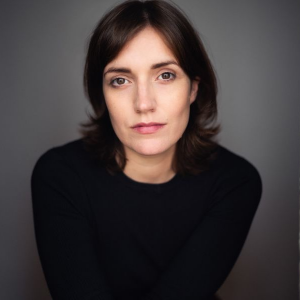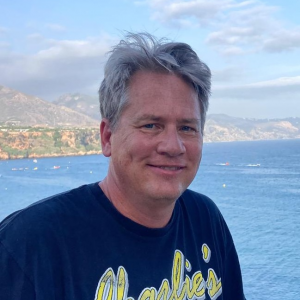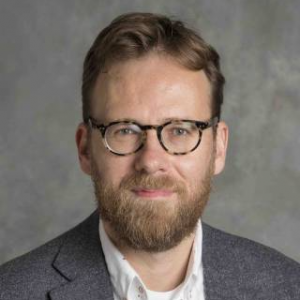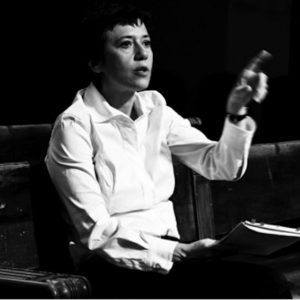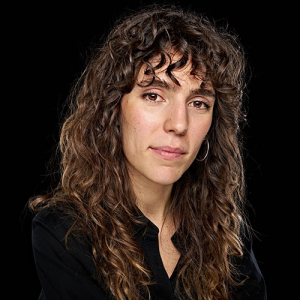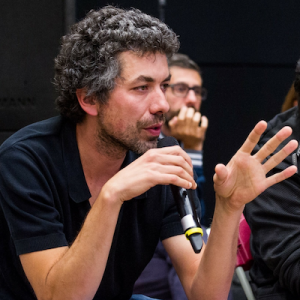SPANISH THEATRE PROGRAMME
Reimagining Hispanic Classics from the Golden Age to Lorca through Theory and Practice in BADA’s month-long summer programme.
This interdisciplinary course is crafted for students and theatre practitioners at all career stages. The programme begins with two weeks in London, followed by two weeks in Spain, where participants will immerse themselves in the rich history and contemporary significance of Hispanic Classics, from the Golden Age to Lorca. They will visit key cultural sites, including Seville, Granada, and Almagro—home to the International Classical Theatre Festival. The itinerary features iconic land- marks such as Granada’s Alhambra, the Huerta de San Vicente (Casa-Museo de Federico García Lorca), Seville’s Plaza de España, and the 500-year-old Corral de Comedias of Almagro. Participants will also have opportunities to attend live performances and engage with leading theatre professionals. The programme will end returning to London for debrief and closure.This course offers an in-depth study of Lorca’s work through a contemporary lens, alongside Golden Age and Ibero-American playwrights, with a special emphasis on female and Latin American voices. It explores the dynamic interplay between script, performance, and historical context, fostering fresh interpretations of cultural, social, and political themes. The programme encourages the reimagining of these works within a modern, global framework through both theoretical and practical exploration.
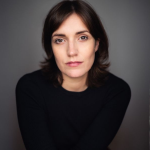
Paula Rodriguez
Course Director, Spanish Theatre-
Applications for the 2026 Spanish Theatre Programme are being accepted on a rolling basis. Please apply at your earliest convenience to avoid disappointment.
Click the Apply button to visit our application portal.
Your application to the Spanish Theatre Programme includes:
- Application form
- Personal statement (approximately 250 words): Tell us about your background/experience and why you are interested in attending this program.
- Resume
- Academic/Professional Recommendation
- Zoom interview with Course Director
If you would like to be notified about future sessions, please sign up for our Spanish Theatre Programme mailing list.
The Summer 2026 session will run 9th June – 7th July 2026.9th June Participants Arrive 10th – 22nd June London 23rd – 26th June Seville 26th – 29th June Granada 29th June – 5th Jul Almagro (coinciding with the 1st Festival Weekend: 3rd – 5th July) 6th July Return to London 7th July Participants depart -
Spend the whole summer in Europe with BADA by taking the Spanish Theatre Programme followed by Midsummer in Oxford for a 10% discounted rate, a total cost of $15,795 as opposed to $17,550. Application deadline: Feb. 6.
From early June you would study Spanish Theatre, based in London, Seville, Granda and Almagro; followed by our renowned four-week acting intensive Midsummer in Oxford (now in its 42nd year!) based at Magdalen College, Oxford University from early July to early August.
Please note: participants are responsible for their own food, accommodation, and transportation between the end of the Spanish Theatre Programme and the start of the Midsummer in Oxford Program.
Contact Jennifer Rockwood on jrockwood@bada.org.uk with questions.
-
Classes include:
- Spanish Golden Age in Performance This module explores performance practices from the 16th and 17th centuries to the present day, tracing how different generations have reimagined the Spanish Golden Age to reflect their own cultural and political contexts. We will examine key works from both Spain and Latin America, focusing on their contemporary relevance and international reception.
- Historical and Cultural Context A comprehensive look at the socio-political and cultural landscapes of early modern Spain and colonial Latin America. This course situates Golden Age theatre within its historical moment, shedding light on the forces that shaped its themes, characters, and dramatic conventions.
- Verse in Golden Age Theatre An introduction to the complexities of Golden Age verse, focusing on understanding its varied metrical patterns and how they inform rhythm, character, and emotion in performance. Students will learn how to work with verse both in theory and practice, and will also explore how to rewrite and create new work inspired by verse.
- Lorca’s Legacy: Literature, Theatre, and Poetry A focused exploration of Federico García Lorca’s artistic legacy. This course contextualises his work within the political, historical, and cultural framework of early 20th-century Spain and analyses how his voice continues to resonate in contemporary theatre and poetry.
- Lectures & Guided Tours A series of talks and discussion sessions with visiting academics and artists, complemented by guided tours of historical and cultural landmarks in both the UK and Spain. These will offer students a deeper understanding of the heritage behind the texts they study and perform.
Studio Work:
- Performance Laboratory From Calderón to Sor Juana, a practical studio component dedicated to performing scenes, monologues, and choral pieces from canonical and lesser-known Golden Age works. Students will engage in ensemble work, character study, and text-based improvisation. Classes will be held in both London and Spain, with an informal performance sharing at the end of the course.
- Movement and Voice for Classical Texts Sessions are designed to support the actor’s physical and vocal relationship with heightened language. Training will draw from both classical and contemporary approaches to embodying verse and narrative on stage.
- Masterclasses with Guest Artists Technique-driven workshops led by renowned actors, directors, and theatre makers specialising in classical theatre and cross-cultural performance. These masterclasses aim to deepen each student’s artistic toolbox and provide diverse perspectives on interpreting Golden Age drama and Lorca’s legacy today.
-
Schedules permitting, we will be joined by the following faculty and guest artists for the course.
-
London
Instituto Cervantes is a public institution created by the Spanish government in 1991 to promote the teaching, study and use of Spanish globally and the understanding of Hispanic cultures abroad. Instituto Cervantes is affiliated with the Spanish Ministry of Foreign Affairs, European Union and Cooperation, and it collaborates with prestigious national and international public and private institutions, with the aim of providing high-quality services and products related to the Spanish language and supporting encounters and exchanges between Spanish-speaking cultures and other cultures around the world.
Sevilla
The Texas Tech Sevilla Center, established in 2001, provides students with the opportunity to take Texas Tech University classes taught by TTU faculty in the heart of Spain. The Sevilla Center is supported by both permanent staff and faculty who travel from Lubbock to Sevilla for each semester (fall, spring, and summer).
Housed in a building originally constructed in the 1890s, the center seamlessly blends historical charm with modern amenities, ensuring a comfortable and functional learning environment. Conveniently located in a vibrant neighborhood, it is just steps away from a variety of eateries, shops, and Sevilla’s bustling downtown.
Granada
Histrion Teatro founded by Nines Carrascal and Gema Matarranz, is a name synonymous with contemporary theatre. Its creative path is founded on two key elements: the defence of the text as a structural element that firmly holds the artistic concept and interpretation as a close link between the actors and the audience.
Almagro
Festival International de Teatro Clásico de Almagro, held annually since 1978 in the historic city of the Almagro in Castilla-La Mancha region, has become a must-attend summer event that gathers over 60,000 audience members to celebrate classical theatre. The primary venue of the Festival is the Corral de Comedias de Almagro, the best-preserved example of the Spanish open air courtyard theatres of the 17th century.
-
The programme will be delivered in English. While Spanish proficiency is not required, the course may be of particular interest to those who speak or are learning Spanish.
We welcome applicants at the undergraduate and graduate level as well as those who are not currently enrolled in educational programmes. Applicants aged 18 must have at least one year’s experience away from home to be considered for this course.
-
The 2026 Spanish Theatre Programme fees are: $8,950 *
Programme fees include all excursions (theatre trips, site visits, museum admission and tours, etc.), air transportation to/from London to Spain, all ground transportation and accommodations while on the course.
* London Accommodations – should you wish to arrange your own accommodation for the London portion of the course, then the reduction in the course fee will be $736. Participants must confirm on acceptance whether they wish to make their own accommodation arrangements or use that arranged by BADA. Due to the high demands for accommodation in London during the summer months, we cannot guarantee that rooms can be made available should a later decision be made to take up the offer of accommodation booked through the course.
All fees are payable in US dollars. Please contact Finance Director Helen Ainsworth at hainsworth@bada.org.uk should you wish to settle the fees in UK Sterling so that an appropriate rate can be agreed.
Please note, in addition to the fees payable to BADA, participants are responsible for:
- Roundtrip Airfare to the UK
- Insurance
- Meals
- Spending money
Spending habits obviously vary widely between participants, but London is an expensive city. We recommend a minimum of £150 ($190) a week for food, laundry and transport if you mostly prepare your own food and use only public transport. Regular coffees, takeaways, meals out or use of cabs can quickly push the cost of subsistence and transport up beyond £200 ($250) per week.
Spanish Theatre Programme Refund Policy
A deposit of $500 is required on acceptance, which is non-refundable. Fees are payable by the due dates as outlined in your acceptance letter. Any fees paid will be forfeited should you withdraw from the programme. Participation in the programme will not be permitted if programme fees have not been paid in full before the start date and any fees paid will be forfeited.
If the programme is canceled by BADA due to circumstances beyond our control, all fees, with the exception of the application fee, will be refunded. BADA accepts no responsibility for personally incurred expenses such as flights or pre-booked ground transportation.
Financial Assistance
Limited awards from the BADA scholarship fund are available to assist accepted applicants in defraying the costs of attending BADA’s summer programmes. These awards are based on need and merit.
Before applying to the program, please note the fees and consider how you will fund the experience should you be accepted. Only a very small number of applicants accepted to the summer 2026 programs will be chosen to receive scholarship funding from BADA. Awards could be a small as a few hundred dollars. Most accepted applicants will need to provide their own funding.
If you would like to discuss the possibilities of receiving scholarship funding prior to submitting an application, please feel free to contact our Summer Programs Admissions Coordinator, Jennifer Rockwood: jrockwood@bada.org.
uk. Note: Fees for BADA’s summer programmes are not eligible for payment under the federal loan system nor do they qualify as higher education expenses under the 529 plan as they are not credit bearing. Unfortunately, BADA is not in a position to assist in the retention of any additional outside grant or loan assistance. -
Accommodations in London will be shared twin rooms at the Stay Club Camden. Accommodations in Spain will also be in shared twin rooms. All rooms in Oxford are single occupancy. Further details on accommodation will be sent to you as part of pre-arrival materials.
-
BADA is not an accredited US institution; we are unable to provide academic credit for the course.
With its intensive workload, 94 contact hours and 86 further unsupervised work hours, this programme has a suggested credit equivalency of two 3 credit courses, in line with other programs BADA runs. You will finish the programme with a portfolio of work, and the course director can provide a written assessment for your home institution.
94 hours of contact time
Classroom time in London – 19 hours
Acting classes in London – 16 hours
London masterclasses – 4 hours
Trip to Museums – 3 hoursSpain classroom time – 14 hours
Spain acting class time – 22 hours
Spain – 2 masterclasses – 4 hours
Spain – guided tours including: Alhambra, Plaza de España and Almagro – 12 hours86 hours of unsupervised work
London – 1 theatre trip – 3 hours
Spain – 3 theatre shows – 9 hours
Report on each theatre show we see – 4 x 2 = 8 hours
Performance writing/prep – 40 hours
2 papers x 8 hours – 16 hours
For enquiries about BADA’s Spanish Theatre Program, please contact:
Paula Rodriguez, Course Director
prodriguez@bada.org.uk


